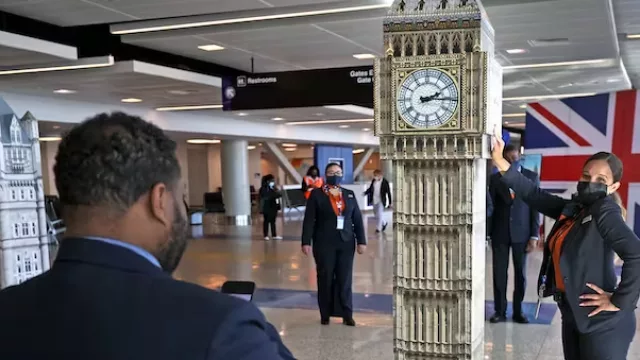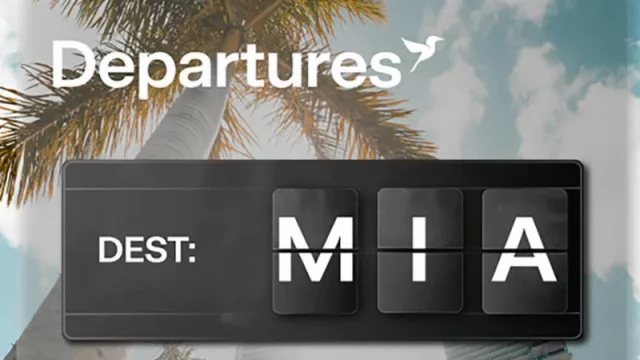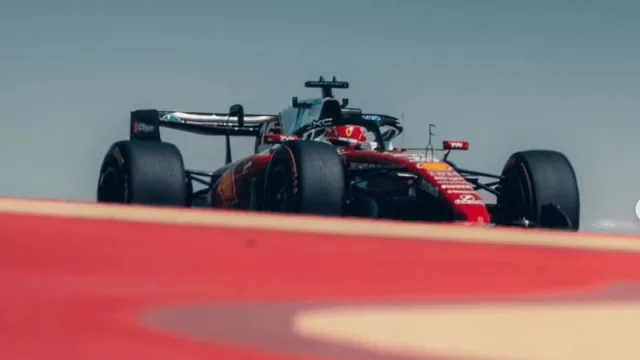That’s going to be a whole lot easier to do this summer if you already have a valid passport. The wait times for getting one are soaring. The State Department says it can take up to 13 weeks for it to process passport applications, and up to nine weeks for expedited service that requires the payment of extra fees. It’s getting about 500,000 passport applications a week, which is at least 30% more than last year, Secretary of State Antony Blinken said in March. And delays in processing were already aggravating in 2021 and 2022.
I’m among the many Americans who have had to cancel or delay trips because of the long wait times. I was hoping to fly to London for a weeklong break between teaching economics courses. Unfortunately, renewing my passport took so long I couldn’t go.
The government says staffing issues are contributing to the delays. As an economist who researches the everyday experiences of consumers, I wondered if there was more to the story, since international travel is a big business. U.S. residents spent around US$17 billion in just the month of March 2023 going abroad.
Origin of passports
Passports have been around a long time. They became more widespread about four centuries ago during the reign of the French King Louis the XIV. The king gave people with royal connections letters asking foreign officials to let the traveler “passe port” – French for pass through – the port or border of another country safely.
You can find a similar statement in the front of every U.S. passport, which “requests all whom it may concern to permit the citizen/national of the United States named herein to pass without delay or hindrance.”
One reason for the passport bottleneck in the United States is a long-term increase in demand for those official blue booklets. Back in 1989, there were three valid passports for every 100 people in this country. Today there are more than 45 passports for every 100 Americans. More recently, many Americans who let their passports expire because they were avoiding international travel when the pandemic began are eager to travel again.
Changes after 2000
The U.S. population has increased about 1% each year over the past three decades. During that same period the number of people holding a valid passport has jumped an average of 10% each year, 10 times faster than population growth.
Part of the rising demand for passports followed a policy change in the early 2000s. Before then no passport was required for U.S. citizens to travel to Canada, Mexico or the Caribbean. A driver’s license or an official document like a birth certificate was suitable documentation to visit countries that shared a common border with the U.S. By 2009, however, a passport was needed to visit those nearby countries by air, land or sea.
But the new rules don’t fully account for the surge in passport issuance. In 2010, about 100 million people had valid U.S. passports. Today, over 150 million do.
Lost, stolen and damaged passports
Another reason for the passport boom is that the State Department is fielding more requests than before for reissued passports to replace lost or stolen documents.
One problem while traveling is keeping your passport safe. While so far no one has ever stolen my passport, I have spilled food on it while climbing mountains, gotten it soaked in a monsoon and crushed it in my luggage on the world’s longest flight.
If your passport is ever lost, destroyed or stolen, you need to file a DS-64 form with the State Department. Filing this form prevents a thief from using that passport. The data is not just kept in the U.S. but is also sent to Interpol’s Stolen/Lost Travel Document database, which prevents worldwide travel by someone posing as you when traveling with your stolen passport.
The government periodically releases the number of DS-64 forms filed. In 2005 a bit more than 100,000 were submitted. This jumped fivefold to over 500,000 people who reported losing their passports in 2021.
Who gets passports?
Where do passport applications come from?
Not surprisingly, states with more people tend to get more passports. For example, Californians got the highest number of passports, about 2.7 million, in 2022.
But some states have more wanderlust than others. After adjusting for population, over the past few years the top two sources for international travel are the high-income states of New Jersey and Massachusetts. Around 1 out every 17 residents in those places applied annually for a passport.
The states where residents are the least likely to apply for a passport are the low-income states of Mississippi and West Virginia. In those places only about 1 out every 65 residents applied on average each year.
What can be done?
One of the reasons passport processing times have gotten so long is that many people are taking trips they put off in the spring of 2020. What can be done?
I suggest two things.
First, the Caribbean is one of the most popular U.S. tourist destinations. U.S. travelers today can visit the U.S. Virgin Islands and Puerto Rico without a passport because they are U.S. territories. I believe that expanding this access to a small number of Caribbean countries, as was possible before the 2009 policy change, would boost tourism and reduce passport demand.
Second, citizens with a current passport should be able to use it while waiting for a renewal. Right now old passports must be submitted with renewal forms, which blocks international travel. The State Department doesn’t really need the old documents. It recently ran a trial allowing people to renew passports online without asking for their current passport books.
Once a new passport is issued, the old one becomes invalid. This could present a problem for people traveling abroad while their passport renews. There is a simple solution for this. At the beginning of the COVID-19 pandemic the State Department allowed U.S. citizens who were abroad when their passports expired to reenter the country.
Extending this policy would mean people could continue traveling no matter how long it takes to renew their passport.
Jay L. Zagorsky, Clinical Associate Professor of Markets, Public Policy and Law, Boston University
This article is republished from The Conversation under a Creative Commons license. Read the original article.
![]()












Tu opinión enriquece este artículo: